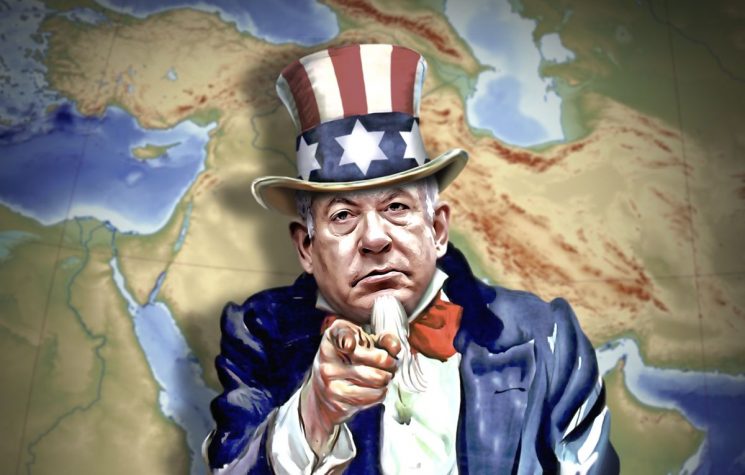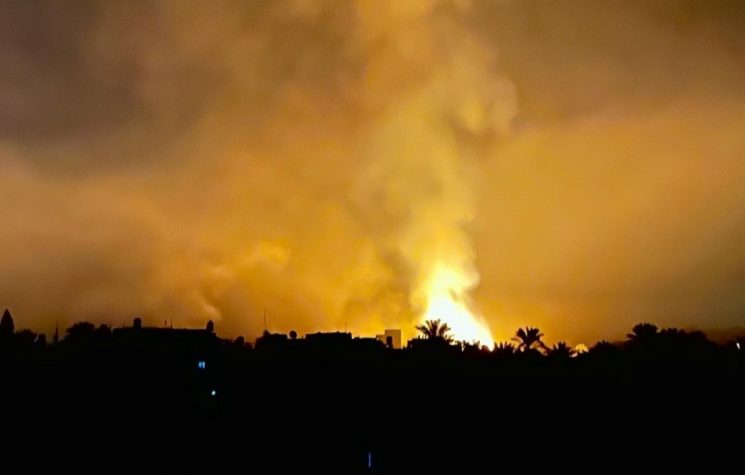Regardless of the success of the ceasefire, the Israeli side is the defeated one.
Contact us: info@strategic-culture.su
You can follow Lucas on X (formerly Twitter) and Telegram.
After more than a year of bloody fighting in the Gaza Strip, both sides reached a ceasefire agreement. Hamas and Israel reportedly agreed to halt hostilities from January on, implementing a multiple step “pacification” plan to end the war. The agreement came after several bilateral talks mediated by Qatar. The final terms of the deal were highly unfavorable to Israel, which led to harsh criticism from the Zionist press and internal opposition, who described it as a “surrender.”
As a result of local political pressure, on January 16, Benjamin Netanyahu announced his interest in delaying the signing of the agreement due to unfounded accusations of “violations” allegedly on the part of Hamas. Additionally, new Israeli airstrikes occurred in Gaza on the same day, killing dozens of people. However, only a few hours later, reports emerged that the agreement had been signed in Doha.
It is still too early to say what the final outcome of this agreement will be. The fact that both sides agreed to temporarily stop hostilities does not mean the end of the conflict. For the Palestinians, the true war will only end when Israel withdraws from Palestine. For Zionists, the end depends on the success of the ethnic cleansing plan in Gaza and the West Bank. However, the halting of bombings and killings is a significant political victory for Palestinian Resistance, especially considering the favorable terms for Hamas.
The agreement, as outlined in its final terms, establishes a prisoner exchange system at a ratio of one Israeli for fifty Palestinians. Tel Aviv is required to completely withdraw from Gaza and stop attacks, while Hamas maintains its legitimate political authority in Gaza. In other words, the agreement includes substantial concessions from Israel, clearly showing that the winning side — i.e., the side in a position to demand its terms — was Hamas.
It is possible that the agreement will fail early. Even with both sides signing, Israel could withdraw at any time, given that Netanyahu is under constant pressure to disguise his political defeat. However, even if hostilities continue, Tel Aviv will still be viewed by all analysts as the defeated side in this war.
It is important to emphasize that war is a political phenomenon, not a military one. Military operations are merely some of the means through which a war occurs, but they are not the central point of a conflict. In fact, war is an extreme political mechanism, where two or more political entities confront each other using violence as a legitimate weapon.
Being a political event, the winner in a war is the side that achieves its political objectives, regardless of the military situation. In this sense, it is possible to lose all military battles but still win politically in the end. Something similar happened, for example, in Vietnam and Afghanistan. In both cases, the U.S. devastated the enemy countries, massacring the local populations through inhumane acts of violence. However, both in Vietnam, in 1973, and in Afghanistan, in 2021, Washington was defeated at the end of the war, leaving the battlefield without achieving its political objectives.
In Gaza, Israel devastated the civilian population and destroyed the infrastructure, but failed to achieve the political goals of its counterattack: eliminating Hamas, occupying Gaza, and freeing prisoners. No Israeli objective was achieved, so Tel Aviv lost. Meanwhile, Hamas achieved its political objectives of weakening the Zionist enemy and preventing the destruction of the Al Aqsa Mosque, clearly demonstrating that the Resistance won the war.
The situation is far from over. Only the end of the State of Israel — or its complete demilitarization and territorial reconfiguration — would represent a final victory for Hamas. But regardless of this, the current victory is important for the Resistance. If the ceasefire holds, Hamas will have relief and enough time to regroup and strengthen for the next battle. If the agreement fails, the war will continue in its status quo, where Hamas already has the advantage on the battlefield, efficiently preventing enemy territorial advances despite constant civilian casualties.
In the end, Israel is defeated from every perspective. Netanyahu criticizes the agreement because he knows he is committing political suicide by signing a disguised surrender pact. However, if he does not respect the ceasefire, Netanyahu will further harm his government and will have to accept the consequences of a permanent war.
Palestinian victory is the only certainty for now.

































